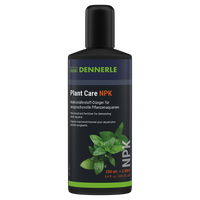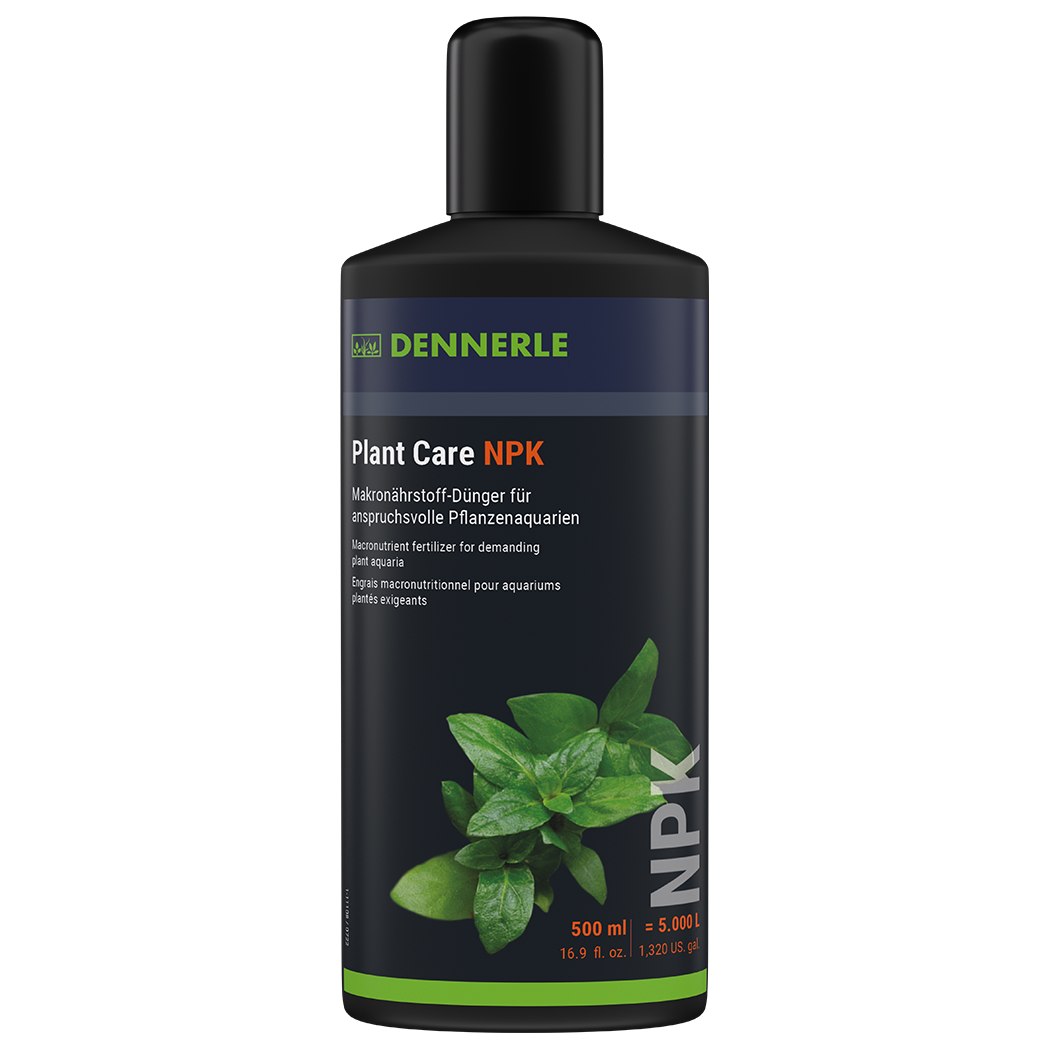
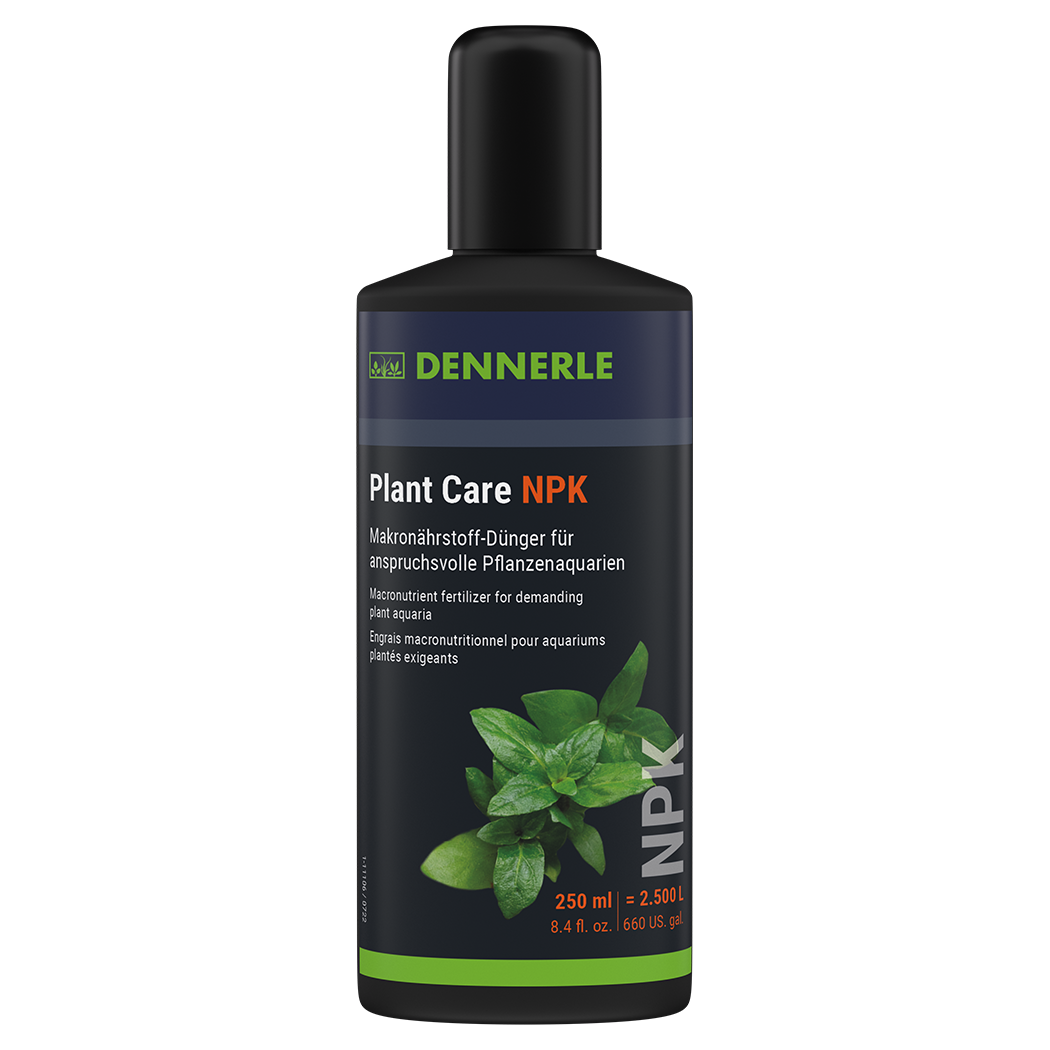
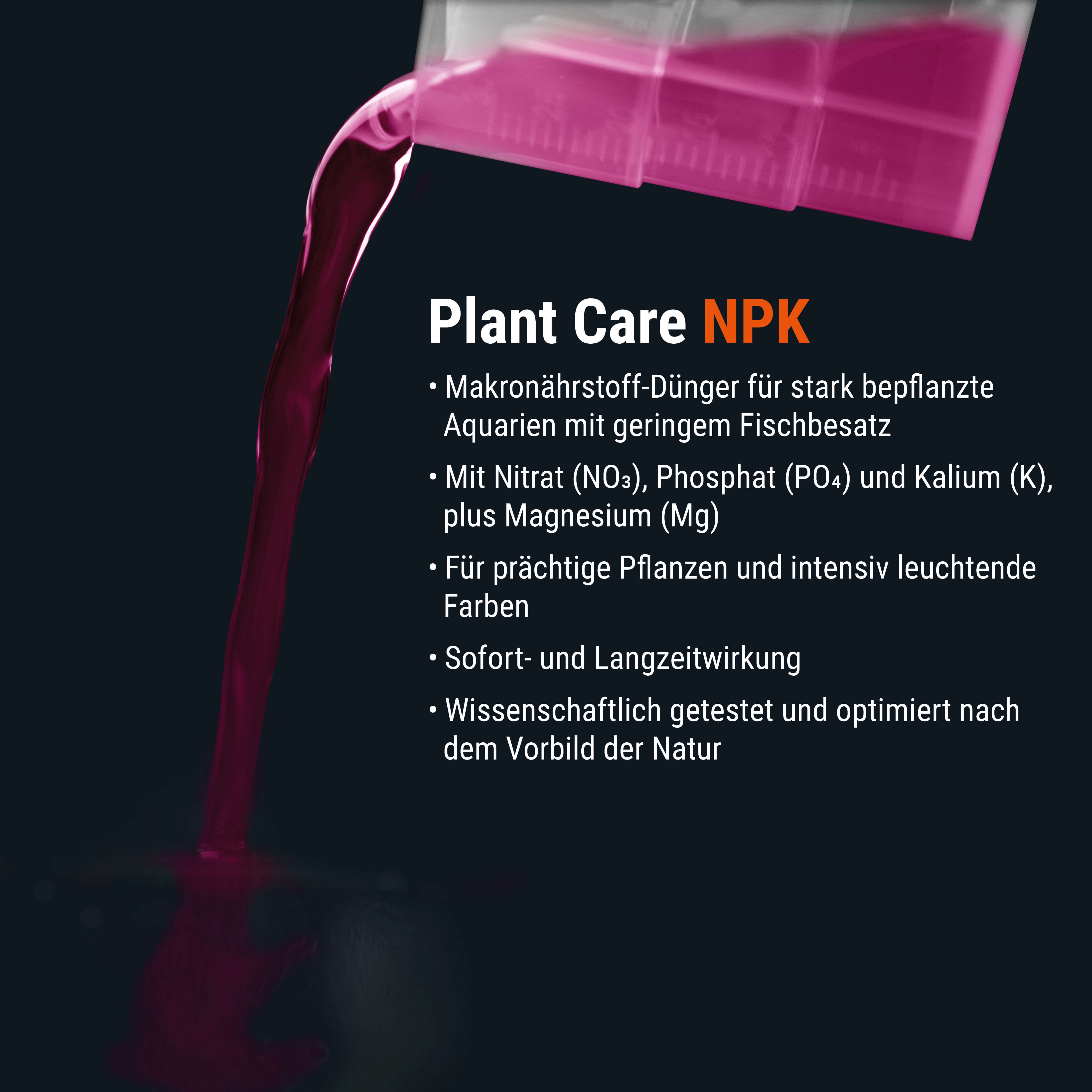
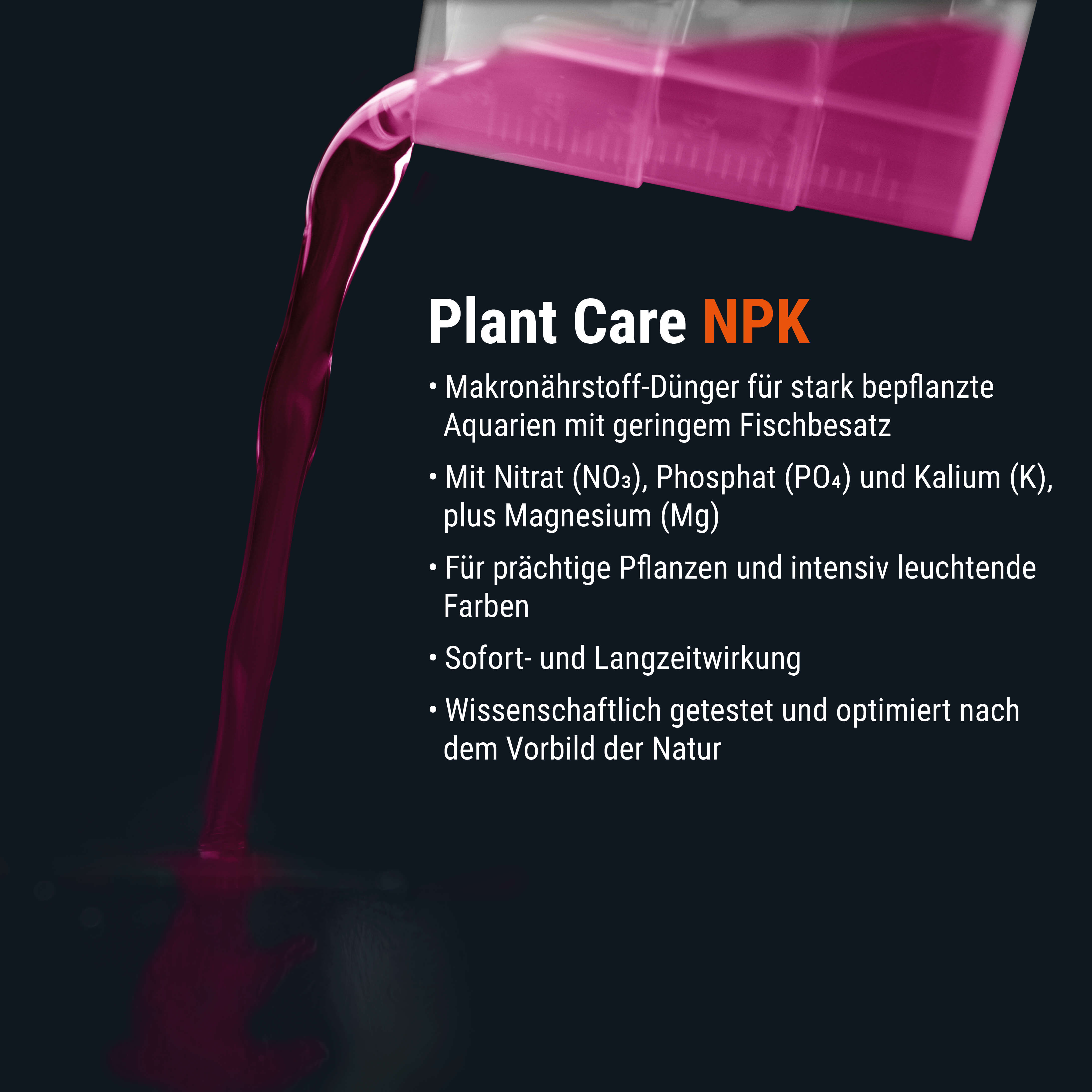
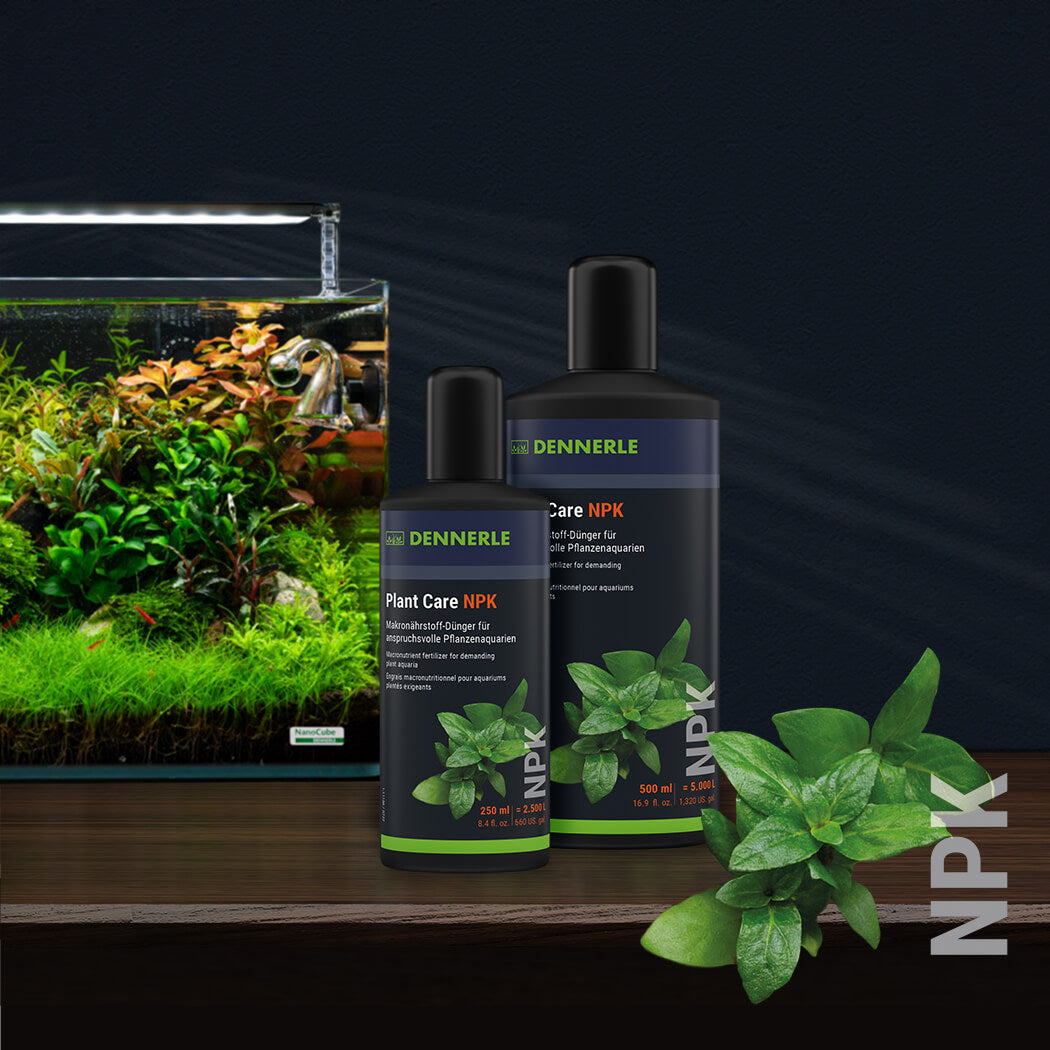
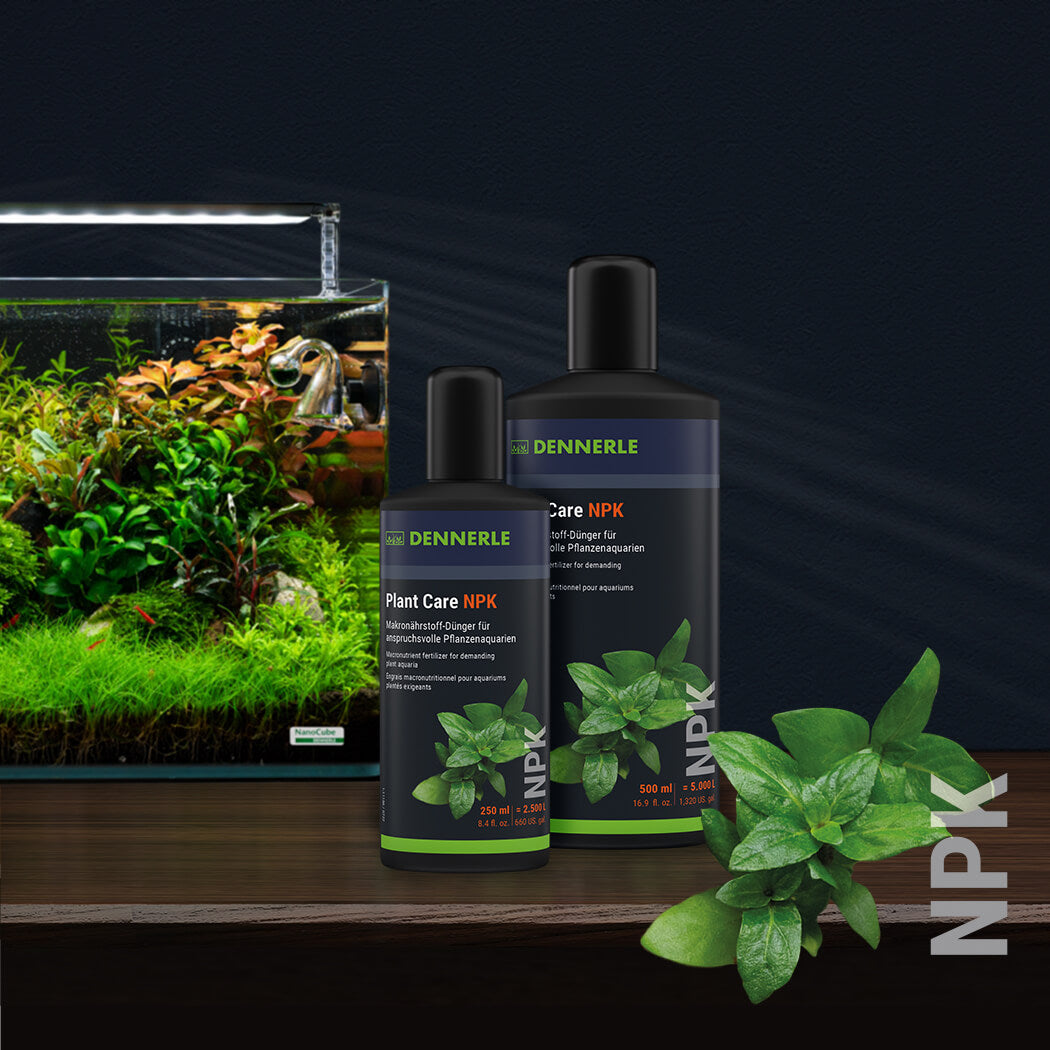
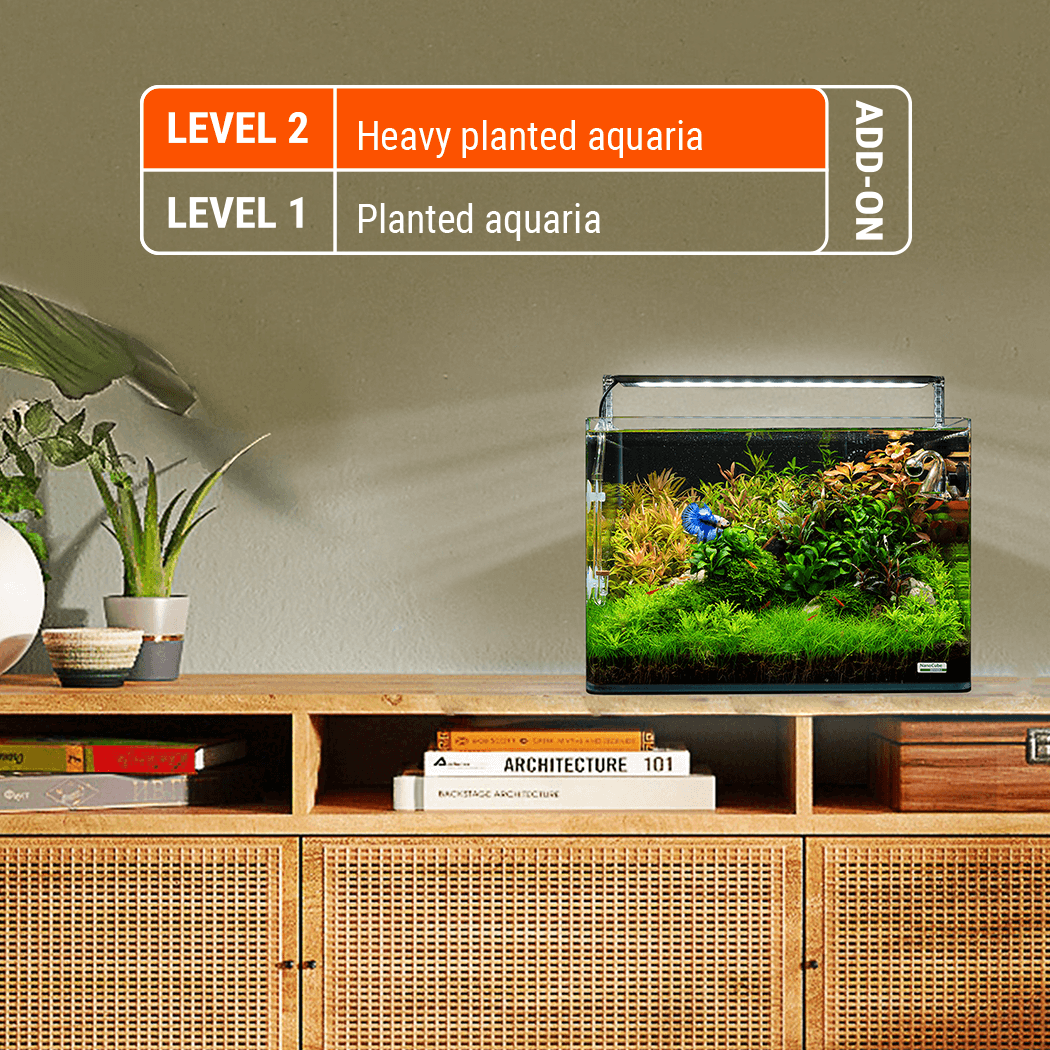
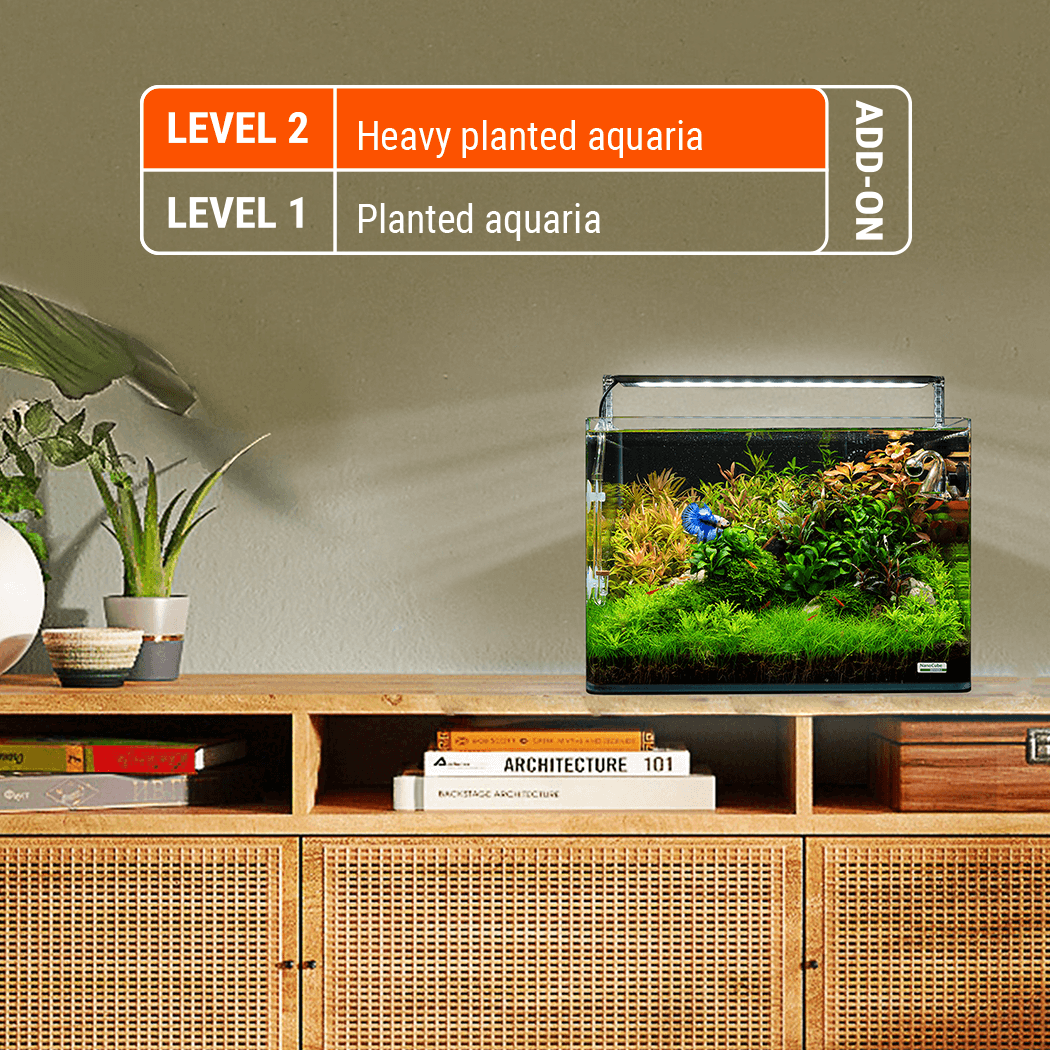
Plant Care NPK
Macronutrient fertilizer for demanding plant aquariums
- Macronutrient fertilizer for heavily planted aquariums with low fish stock
- With nitrate, phosphate and potassium plus magnesium
- For magnificent plants and intensely bright colors
- immediate and long-term effects
- Scientifically tested and optimized based on nature
- Macronutrient fertilizer for heavily planted aquariums with low fish stock
- With nitrate, phosphate and potassium plus magnesium
- For magnificent plants and intensely bright colors
- immediate and long-term effects
- Scientifically tested and optimized based on nature


Often bought together
Plant Care NPK
The three macronutrients N = nitrogen (nitrate), P = phosphorus (phosphate) and K = potassium are particularly important. The addition of N and P is generally not necessary in normal, planted community aquariums, as these substances enter the aquarium in sufficient or sometimes even excessive amounts via the food and fish excrement. The situation is different with demanding plant aquariums or aquascaping aquariums, however. They have an above-average nutrient requirement, especially for macronutrients. In these types of aquariums, an N or P deficiency can quickly occur, especially with no or few fish. A K deficiency is also possible, but less common, as potassium is always present in certain quantities in tap water and is regularly added via iron fertilizers such as Plant Care Pro . In demanding plant aquariums, it is therefore very useful to keep an eye on the macronutrients and supplement them if necessary. The biological balance of nutrients is particularly important for an NPK fertilizer. The nutrient ratios in Plant Care NPK were chosen so that all three macronutrients are absorbed by the plants in equal proportions. This means that even with long-term, regular use, there can be no deficiencies or disadvantageous accumulations of individual nutrients. Nutrient imbalances should always be avoided, as they usually lead to algae problems.
When do I use Plant Care NPK ?
Every aquarium has a specific nutrient consumption depending on the number of plants, plant species, animal population, feeding, water changes and growth conditions (amount of light/lighting time, CO2 addition, filter technology, etc.). The required NPK addition should therefore be determined individually for each aquarium. Plant Care NPK is only used when necessary, i.e. when there is a real lack of macronutrients. We recommend measuring the nitrate and/or phosphate content weekly and dosing Plant Care NPK accordingly. You can also measure the potassium content of the aquarium water (tests available from specialist retailers). However, this measurement is usually not necessary, as the tap water plus Plant Care Pro and Plant Care NPK provide enough potassium. An overdose of potassium is hardly possible in practice and is generally not detrimental. Significant overdoses of nitrate and phosphate, on the other hand, can promote algae growth. Plant Care NPK should therefore not be used at the beginning without first measuring the nitrate and, ideally, the phosphate content. If the tap water used for the water change does not contain exceptionally high amounts of nitrate or phosphate, measuring the nitrate content alone is sufficient later on in practice as a basis for deciding on NPK fertilization and dosage. Simple immersion tests can also be used for this, e.g. the Dennerle WaterTest 6in1 .
Dosage & Application
If you have measured and fertilized regularly for several weeks, you can see at which level the measured values settle and which macronutrient additions the aquarium requires. You can then add the determined weekly dose of Plant Care NPK as standard and increase the measurement intervals to 2 to 4 weeks with a clear conscience. A good guideline is 10 ml / 100 L / week , which corresponds to an addition of 5 mg/L nitrate, 0.4 mg/L phosphate and 2.5 mg/L potassium. If the tap water used for the water change contains exceptionally high levels of nitrate (e.g. 50 mg/L) but hardly any phosphate, or high levels of phosphate (> 1 mg/L) but hardly any nitrate, then the use of Plant Care NPK is not recommended in order to avoid disadvantageously high levels of individual macronutrients and nutrient imbalances. In this case, Dennerle Plant Care N or Plant Care P single-nutrient fertilizers should be used to specifically compensate for nutrient deficiencies. Because in addition to the absolute nutrient concentration, the nutrient ratio is also important. The nitrate-phosphate ratio should ideally be in the range of 10:1 to 15:1. If the tap water only contains small amounts of potassium (e.g. < 3 mg/L), Dennerle Plant Care K should be used. This is often the case with very soft water. You can find out the analysis values for your own tap water from your local water supplier. They are easy to access online. Furthermore, potassium is one of the few nutrients that only get into the aquarium in trace amounts through fish food. A macro nutrient fertilizer must always be used in combination with a micro nutrient fertilizer. For a complete supply of nutrients and the best possible plant growth, we recommend combining Plant Care NPK with Plant Care Pro .
Macro-nutrients, guideline values for planted aquariums
| nitrate | phosphate | potassium | |
| ideal values mg/L | 10 – 15 | 0.1 – 0.3 | 10 – 15 |
| Recommended concentration range mg/L | 5 – 30 | 0.1 – 1.0 | 5 – 30 |
The right fertilizer for my aquarium.
| Aquarium |
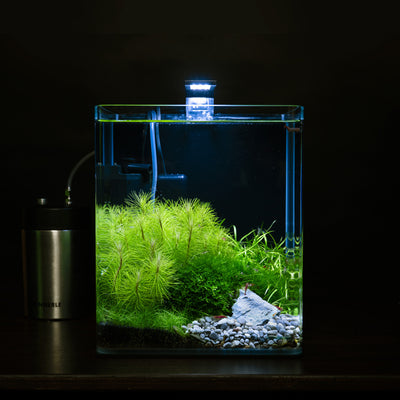
Easy planted aquarium
|
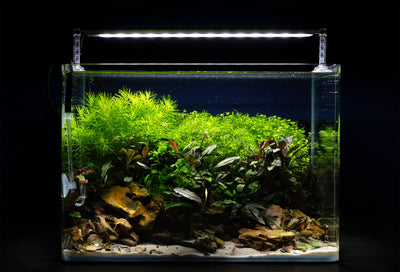
For well-planted aquarium
|
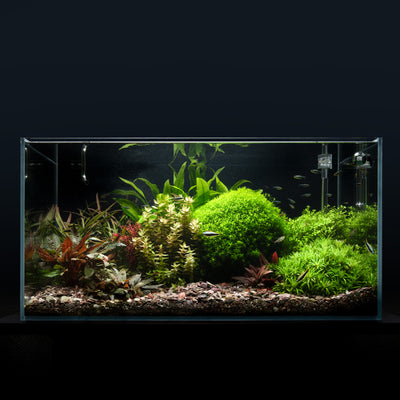
For well-planted, large aquarium
|
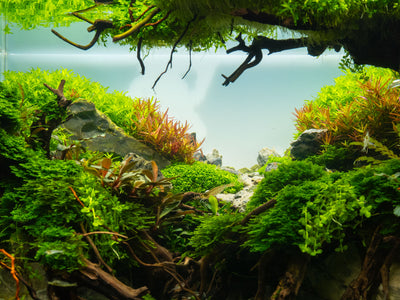
For aquascapes
|
| Products |
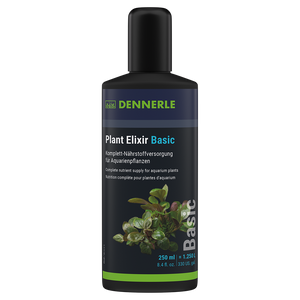
|
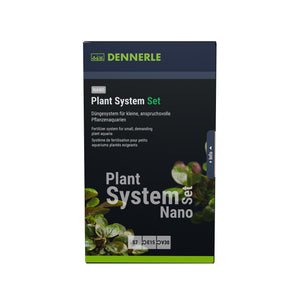
|
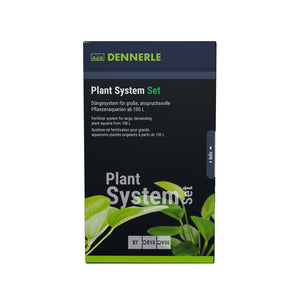
|
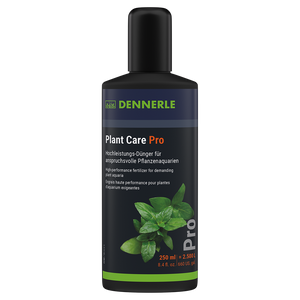
|
| Planting | ||||
| With no or little fish stock | ||||
Plant Care NPK in detail
Dosage and Application
Product data
Plant Care NPK
Item No.
Item No.
Barcode
Barcode
Dimensions (W x D x H)
Dimensions (W x D x H)
Declaration
Type
NK fertilizer solution 1 + 2.7Type
NK fertilizer solution 1 + 2.7Main components
1.1% N total nitrogen, 1% nitrate nitrogen; 2.7% K₂O water-soluble potassium oxideMain components
1.1% N total nitrogen, 1% nitrate nitrogen; 2.7% K₂O water-soluble potassium oxideSecondary constituents
0.26% P₂O₅ water-soluble phosphate, 0.6% water-soluble sulfur, 0.77% MgO water-soluble magnesium oxide, 0.44% Na water-soluble sodium, 2.08% organic substanceSecondary constituents
0.26% P₂O₅ water-soluble phosphate, 0.6% water-soluble sulfur, 0.77% MgO water-soluble magnesium oxide, 0.44% Na water-soluble sodium, 2.08% organic substanceprocessing agent
For preservation: potassium sorbateprocessing agent
For preservation: potassium sorbateApplication agents
dyeApplication agents
dyeStorage instructions
Store at room temperature. Protect from heat and frost. Keep out of reach of children and pets.Storage instructions
Store at room temperature. Protect from heat and frost. Keep out of reach of children and pets.application specification
Only for fertilizing ornamental plants in aquariums. For detailed instructions for use and dosage, see the packaging text. Note: Official advice takes precedence.application specification
Only for fertilizing ornamental plants in aquariums. For detailed instructions for use and dosage, see the packaging text. Note: Official advice takes precedence.Product safety information
Manufacturer
- Company name: Dennerle GmbH
- Address: Industriestraße 4, 66981 Münchweiler, Germany
- Email: service@dennerle.com
- Phone: +49 6395 9107-440
Plant Care NPK
